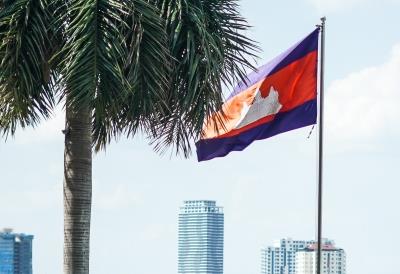
Cambodia Approves Investment Projects Worth $6.7 Billion During January-July Period
The Southeast Asian country approved 440 investment projects during the January-July period this year, up 88 per cent from 234 projects over the same period last year, generating about 312,000 jobs, the CDC said.
Main projects included an auto garage equipment factory, a car assembly plant, car tire plants, an electric three-wheeler assembly plant, solar power plants, a solar panel plant, wind power stations, a hydroelectric plant, metal and aluminium processing plants, metal mining, a dry port, tourism resorts, and a fruit processing factory.
China remained the top foreign investor in the kingdom, the CDC said.
Ministry of Commerce's Secretary of State and Spokesperson Penn Sovicheat said the Regional Comprehensive Economic Partnership (RCEP) Agreement and Cambodia's bilateral free trade agreements (FTAs) with China, South Korea, and the United Arab Emirates are key factors in attracting foreign direct investment, Xinhua News Agency reported.
"These free trade pacts are magnets for foreign investors to Cambodia," he told Xinhua. "New investments will bring new capital, technologies and job opportunities for our people."
Earlier in March, Cambodia introduced the Cambodia Enterprise Innovation Index (CEII) guidelines, aiming at enhancing the national innovation capabilities of businesses and their competitiveness.
Speaking at the event in Phnom Penh, Hem Vanndy, Minister of Industry, Science, Technology and Innovation, said enhancing enterprises' innovation capability presented a new and crucial opportunity to elevate Cambodia's prestige by improving its position in the Global Innovation Index.
"This advancement will foster sustainable and inclusive socio-economic growth and create a favourable environment for our journey toward innovation-driven development," he said.
Innovation was at the core of green manufacturing, improving resource efficiency and reducing the consumption of scarce resources. It also played a vital role in human resource development, productivity enhancement and income generation.
Developed under the support of a European Union (EU)-funded project and implemented by the United Nations Industrial Development Organization (UNIDO), the CEII guidelines offered a clear and comprehensive framework for assessing the innovation capabilities in enterprises of all sizes across the Southeast Asian country.

Legal Disclaimer:
MENAFN provides the
information “as is” without warranty of any kind. We do not accept
any responsibility or liability for the accuracy, content, images,
videos, licenses, completeness, legality, or reliability of the information
contained in this article. If you have any complaints or copyright
issues related to this article, kindly contact the provider above.
Most popular stories
Market Research

- Moonbirds And Azuki IP Coming To Verse8 As AI-Native Game Platform Integrates With Story
- B2BROKER Taps Finery Markets To Power Institutional Crypto OTC On B2TRADER
- Forex Expo Dubai 2025 Returns October 67 With Exclusive Prize Draw Including Jetour X70 FL
- “Farewell To Westphalia” Explores Blockchain As A Model For Post-Nation-State Governance
- Schoenherr Opens London Liaison Office As Gateway To Central Eastern Europe
- Falcon Finance Sets Community Sale Record On Buidlpad With $113M $FF Token Commitment



















Comments
No comment